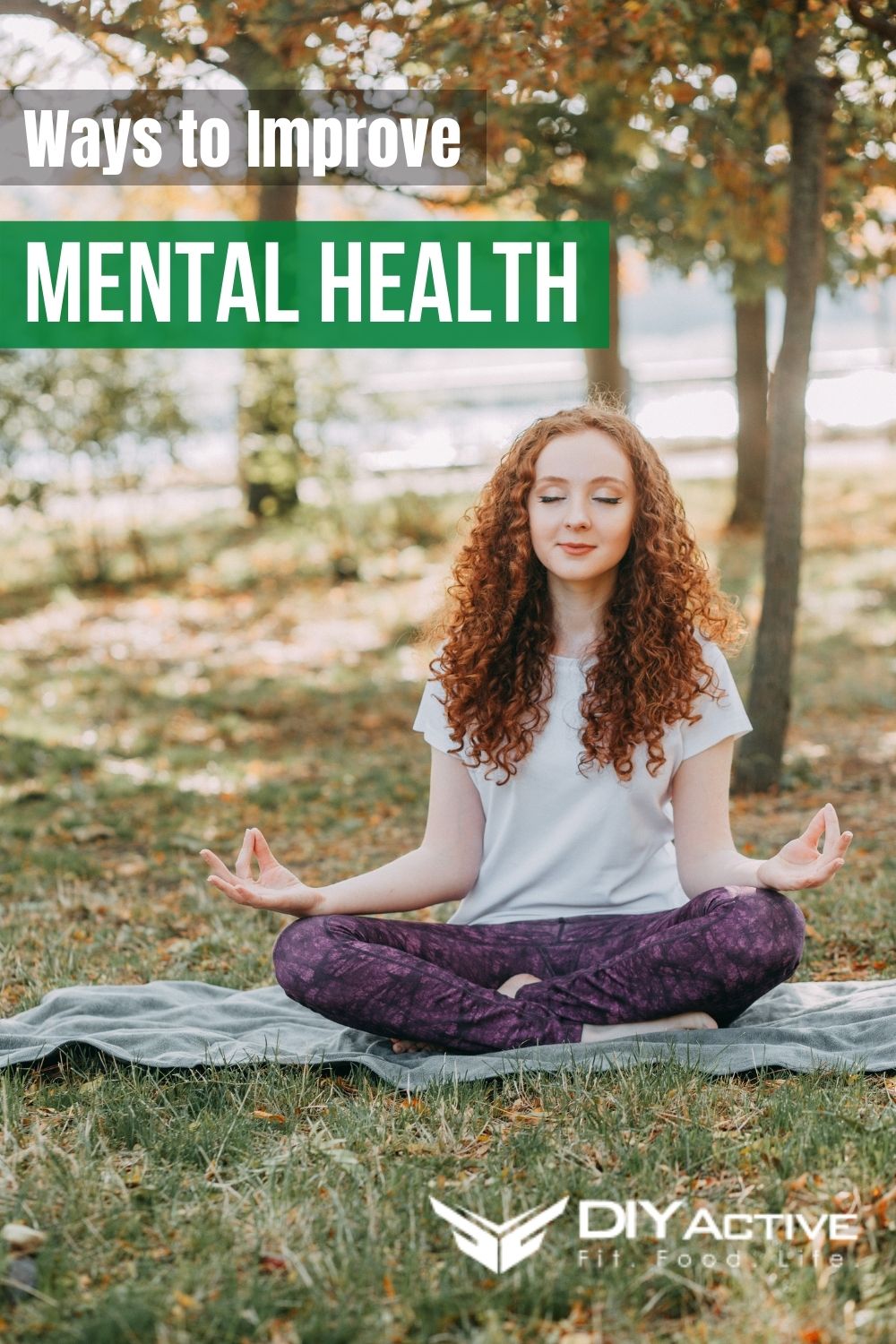
We all strive for a greater meaning in life or ways to become happier, but it’s important to take control of the smaller things. You may not find the meaning in life this afternoon, but you may be able to make your day a little better by going for a long walk.
Key to Improve Mental Health
The key to improving our mental health is by routinely doing the little things right – small steps – towards a more healthy lifestyle.
1. Exercise
Stretching and cardio exercise are two well-known ways to make us feel better. Beyond just relieving pain and tightness, they can release endorphins and other hormones, achieving that “runners high” people seem to rave about.
Whilst that is temporary, the stress-relieving properties are long-lasting. The best thing is exercising is something you can easily do on your own.
Don’t just neglect strength exercise, though. Going for a long walk or 30 minutes of yoga cannot replace lifting weights. By engaging your central nervous system and demanding more from your body, you can increase testosterone and make a more significant physiological impact.
Some people find that pushing themselves through very difficult exercise makes us more robust to anxiety – we have just spent all that anxious energy and left it behind in the gym.
2. Online therapy
Of course, suffering from a mental health disorder may not be instantly treatable by having a workout – depression or anxiety can be much more difficult to tackle. This is why talking to a counselor or a therapist is the single most effective thing one can do for their own mental health.
This is where you’re in safe hands, but it’s all the more accessible when it’s over the phone, as many people see traditional therapy as an expensive obstacle.
There’s not too much to say on this topic, because a professional therapist will say it much better, but it’s important to make clear that online therapy isn’t just for those who have a diagnosed disorder.
Everybody can benefit from therapy, no matter who they are or how small they perceive their problems to be. This is making online therapy for men all the more popular too, destigmatizing therapy.
Betterhelp is the top-rated online therapy site and an example of how technology is making important services more accessible in society.
3. A Balanced Diet
You are what you eat isn’t just a metaphorical adage, it’s real. Our guts and brain are very closely linked. In fact, our gut produces around 95% of our body’s serotonin (the neurotransmitter that stabilizes your mood).
So, having healthy bacteria in your gut can have actual effects on our decision-making, mood, and our entire experience of life – quite the scary argument for those who do not believe in free will.
To achieve an optimal diet is incredibly hard, but to achieve a balanced one and eat healthily is incredibly simple. Just stick to the timeless advice of eating plenty of fruit and veg, cut back on processed foods, and consider some supplements (i.e. Omega 3) if you’re still deficient in anything. Tracking your calories can be helpful too.
4. Take outdoor breaks from work
Almost all of the advice in this post will be in opposition to work and productivity – but if you don’t take care of your mental health, your productivity will fall off anyway. One thing that you must make time for is a regular stretch at your desk along with going outdoors on your break.
For every hour spent at the desk, try to stretch for 5 minutes. Most stretches can be done whilst still at the desk. However, going outside on your breaks, particularly when working from home, is found to improve our mood and relieve stress. It helps us get back in touch with nature, to an extent, and even boosts our self-esteem.
5. Connect with others
Getting back in touch with nature is important, but it’s also important to get in touch with people. Many mental health issues stem from our connection to others – or lack thereof. Either we are lonely and deprived of that connection, or we have had traumatic histories with immediate friends and family.
In both circumstances, connecting more with friends and neighbors can help improve our mental health. Feeling valued in society, like you make a difference and you’re not just an observer, as well as building back any attachment issues or neglect you may have experienced.
6. Meditation
If we were to get technical, it could be argued that all suffering is done when we are not in the present moment. If we’re anxious, we’re likely thinking about yesterday or what will happen tomorrow.
Even if we’re in physical pain, it often comes from a fear that it may go on. To prove this, someone else pinching you is clearly a worse experience than pinching yourself – because, in the latter, you’re not factoring in future suffering as you can control when it stops.
All of this amounts to one thing: practice meditation. Meditation is the practice of being in the present moment, but also noticing when you’re not. That noticing is a strengthening of awareness that can carry over into your day-to-day life.
7. Reduce Alcohol intake
Alcohol is well researched to be a depressant. The more people drink, the more likely they will get the blues. It’s not just the physical damage that it does to the brain, but the next day you’re likely to be left feeling more anxious and lethargic.
Beyond this, the decisions we make when drunk are not the best. This can quickly become a source of more anxiety, where we become more ashamed of how we treated others whilst under the influence.
However, even if you never get drunk, moods are reportedly lifted by those who stop their casual, one beer-a-night habit.
8. Learn new skills
Finally, self-esteem is an important factor in our mental health. We want to feel like we are moving forward in life, but also in society. Learning new skills can be a fun hobby where we find a source of meaning, as we can see ourselves progress at something and gain competence. This is great for our confidence.
Learning new skills can also make us feel as if we are more valued in society. Whether it’s because we can help our neighbors with some DIY skills or because we’re getting a pay rise due to being competent in a peripheral skill – both make us feel great.
Photo by Natalie
Photo by Anna Shvets


345002 734374Respect to author , some great information . 154517